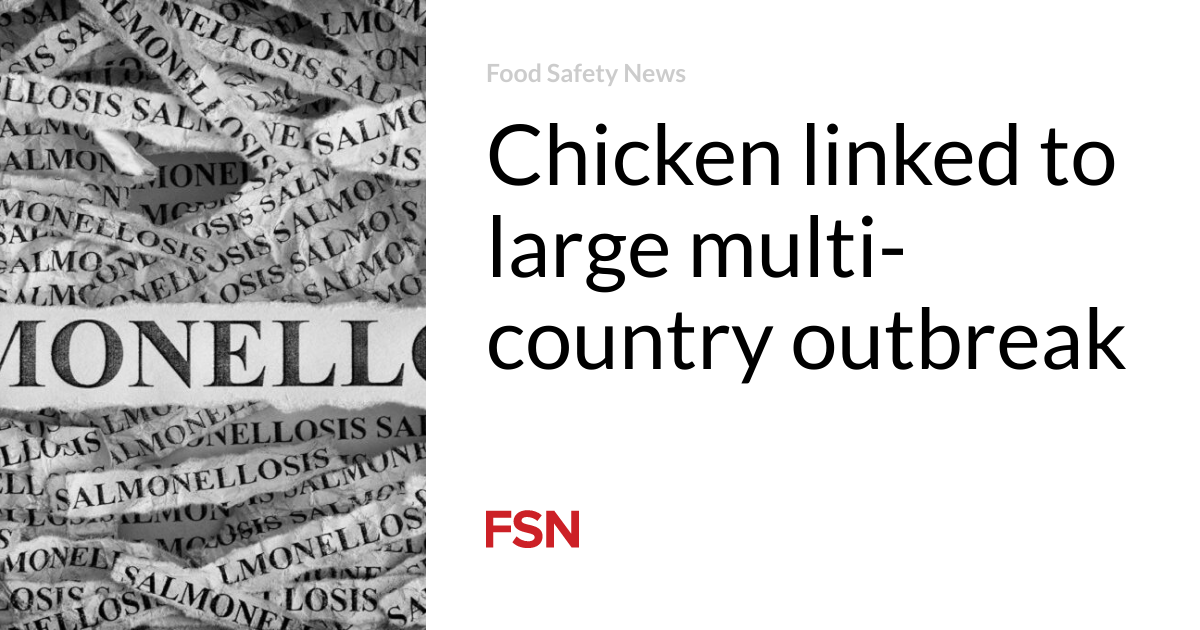Infection
Chicken linked to large multi-country outbreak
Sixteen countries, including the United States, have reported Salmonella infections in an outbreak linked to chicken meat that has affected more than 300 people.
Chicken and chicken meat products such as kebabs are the likely source of the multi-country outbreak caused by three types of Salmonella Enteritidis, said the European Food Safety Authority (EFSA) and European Centre for Disease Control and Prevention (ECDC).
Bacteria similar to the outbreak strains have been detected in chicken meat and kebab samples. Food traceability data points to seven producers in Poland and one in Austria, but no microbiological evidence of contamination at their facilities have been found.
From January to October 2023, 335 laboratory-confirmed Salmonella Enteritidis sequence type (ST) 11 cases belonging to three clusters have been reported in 14 EU countries, the United Kingdom, and the United States, affecting all age groups. Nine cases in three countries were hospitalized, and one person in Austria died.
The latest patient count is an increase from the 130 cases in 11 countries revealed in August when an analysis by ECDC focused on two sub-clusters of Salmonella Enteritidis sequence type 11.
Outbreak details
The first cluster has 66 patients in nine EU countries and the UK. Patients range in age from less than 1 to 84 years old, with more men affected than women. The UK has the most cases in this cluster, with 21, followed by France with 19. One person in Austria died, three in Poland, and five in Germany were hospitalized. The latest case was in the UK in October 2023.
Cluster 2 has 192 cases in 12 EU countries and the UK. One woman was sick in the U.S. with a travel history to Spain in June 2023, where infection likely occurred. The age range of patients in the EU was under 1 to 98 years old. One person in Italy was hospitalized. The UK has the most infections, with 83, followed by France with 60.
Cluster 3 has 77 patients in eight EU countries and the UK. Four cases in Poland occurred before 2023 and were detected during a research project. In this cluster, the age ranged from 2 to 83, and more men were sick than women. France has the most cases with 33 while the UK has 27.
Affected countries include Austria, Belgium, Denmark, Finland, Germany, Ireland, Italy, Luxembourg, the Netherlands, Norway, Poland, Slovenia, and Sweden.
Most interviewed cases reported consumption of chicken meat, including kebabs. Three Salmonella-contaminated kebabs shared several Polish food businesses.
Cluster analysis of sequences revealed the presence of human isolates in 2022 and 2023 for cluster 1, 2012 to 2023 for cluster 2, and 2014 to 2023 for cluster 3 in multiple European countries, indicating prolonged and endemic circulation of the strains.
Official controls also found the presence of other Salmonella types, including Infantis, Kottbus, Virchow, and Rauform.
While contamination might have occurred at the restaurant level in one case, for other products, it likely happened before they left their production or processing sites or at the broiler farm level.
“Further investigations are needed to identify the root cause of the contamination and the source of infections, which is crucial for prompt implementation of targeted effective control and corrective measures. As the sources have not been identified, new cases will likely occur in this prolonged multi-country outbreak,” said ECDC and EFSA.
(To sign up for a free subscription to Food Safety News, click here.)

